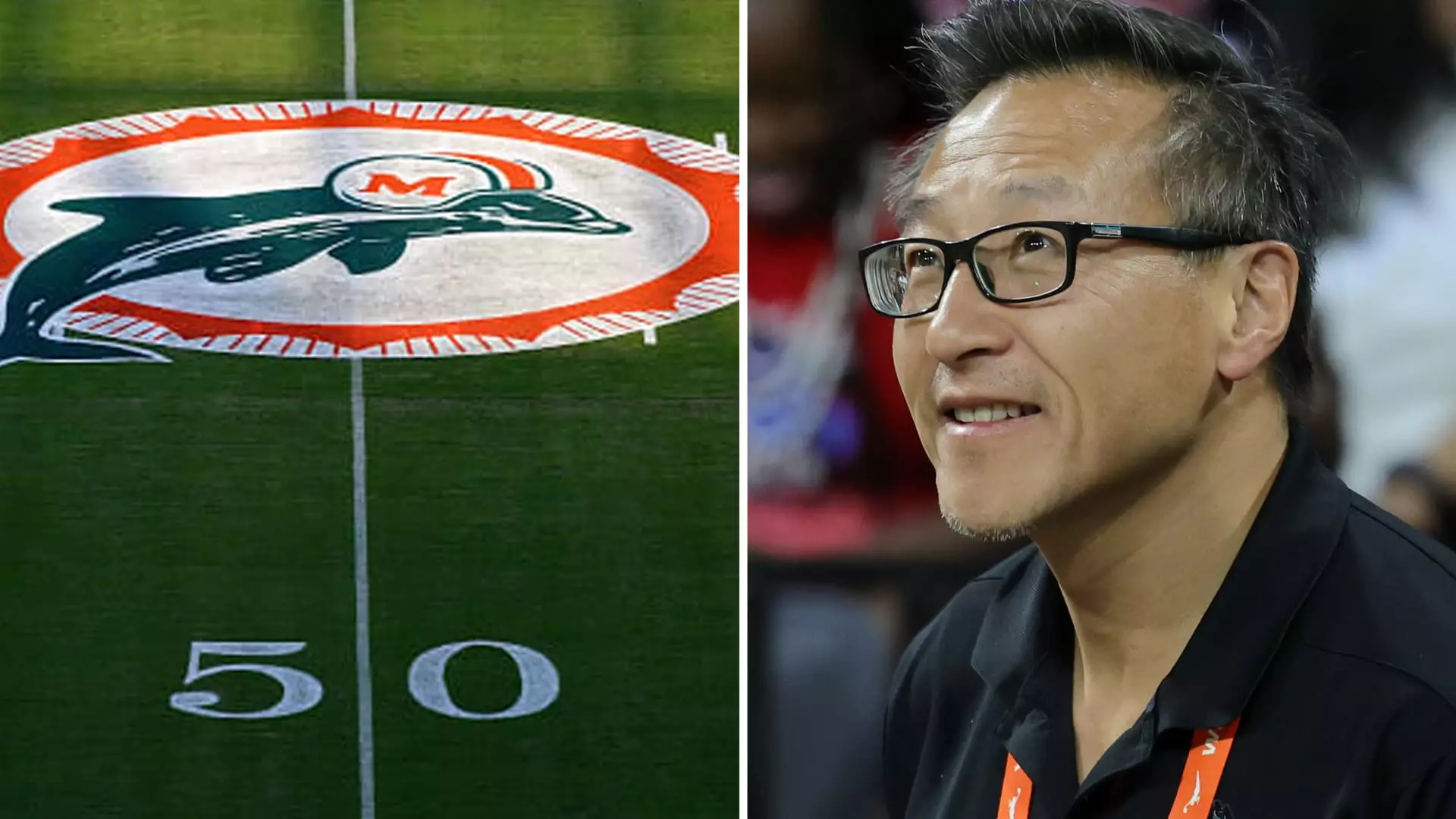The professional sports arena has forever been a bastion of prestige and wealth, and the recent developments surrounding the Miami Dolphins epitomize this changing landscape. As teams become increasingly valuable, owners are looking for innovative ways to expand their holdings and maximize revenues. Current reports suggest that the Dolphins are in advanced negotiations to sell a minority stake to Ares Management, a private equity firm, and billionaire Joe Tsai. This venture sheds light on a growing trend where sports franchises target diversified ownership structures to enhance profitability, especially in larger markets where revenue potential is distinctly higher.
From a broader perspective, this transaction indicates a pivotal shift within the National Football League (NFL). Such an investment would not only provide necessary capital but also a realignment of resources, influencing how team operations are executed. NBA team owners and stakeholders like Joe Tsai are diversifying their portfolios across various sports, a strategy that serves both competitive advantages and financial rewards.
Valued at a staggering $8.1 billion, the deal encompasses not just the Miami Dolphins but also Hard Rock Stadium, operating rights for the Miami Grand Prix Formula 1 race, and a stake in the Miami Open tennis tournament. This multifaceted agreement is particularly noteworthy because it indicates a transition from merely owning a sports team to possessing an entire portfolio of connected assets. Such arrangements are increasingly important for generating revenue streams outside of traditional ticket sales and merchandising.
Estimates suggest that a controlling stake in these assets could yield a value north of $10 billion. This reflects a broader trend in sports asset valuation, which has been on a sharp incline over the past few years. As a measure of the Dolphins’ standing in the league, CNBC recently ranked them as the eighth most valuable NFL team at $7.1 billion—revealing the immense potential for owners like Stephen Ross, who acquired the team for a mere $1.1 billion in 2009.
However, the proposed sale reflects more than just a financial transaction; it points to Ross’s intent to reinvest in his South Florida real estate portfolio while enhancing his stake in sports. This dual focus showcases an entrepreneurial strategy that mirrors trends seen across various industries, where asset fluidity can yield substantial returns.
A noteworthy development in this narrative is the recent change in NFL investment policies, which now permits select private equity firms to acquire up to a 10% stake in teams. This decision marks a historic moment for the league, which had long eschewed private equity involvement. The softened stance may be an acknowledgment of fluctuating market realities, wherein traditional ownership models are compromised as valuations skyrocket and finding buyers becomes increasingly difficult.
The selection of Ares, a firm managing assets worth $450 billion, for this investment underscores the league’s new direction. The collaboration could pave the way for similar endeavors across the league, establishing a model for future transactions and partnerships. It remains to be seen how these dynamics will unfold, particularly considering that nothing is finalized regarding the deal at this juncture.
Joe Tsai’s increasing footprint in the sports domain signifies a broader trend in professional sports where billionaires are consolidating their power and influence. With ownership stakes in multiple franchises, Tsai appears to be designing a vast interconnected web of sports assets. His existing portfolio includes the Brooklyn Nets, New York Liberty, and other franchises, thus indicating an ambition to create consistency and cross-promotion among his ventures.
Moreover, Tsai’s involvement could reignite interest in diversifying revenues through partnerships and shared events, allowing entities within his ownership family to bolster audience engagement across different sports. The unprecedented growth trajectories of franchises under similar umbrella ownership hint that this trend could shape the future of sports provenance in America.
The Miami Dolphins’ potential minority stake sale is merely a reflection of the innovative approaches that owners are pursuing in today’s sports landscape. As they navigate a complex interplay of valuations, market expectations, and investment strategies, the steps taken by Ross and prospective partners could redefine what it means to own a sports team. The ramifications of such ventures extend beyond financial aspects—setting the stage for a new era of interconnected sports enterprises that could yield unprecedented collaborations, economic growth, and fan engagement.

